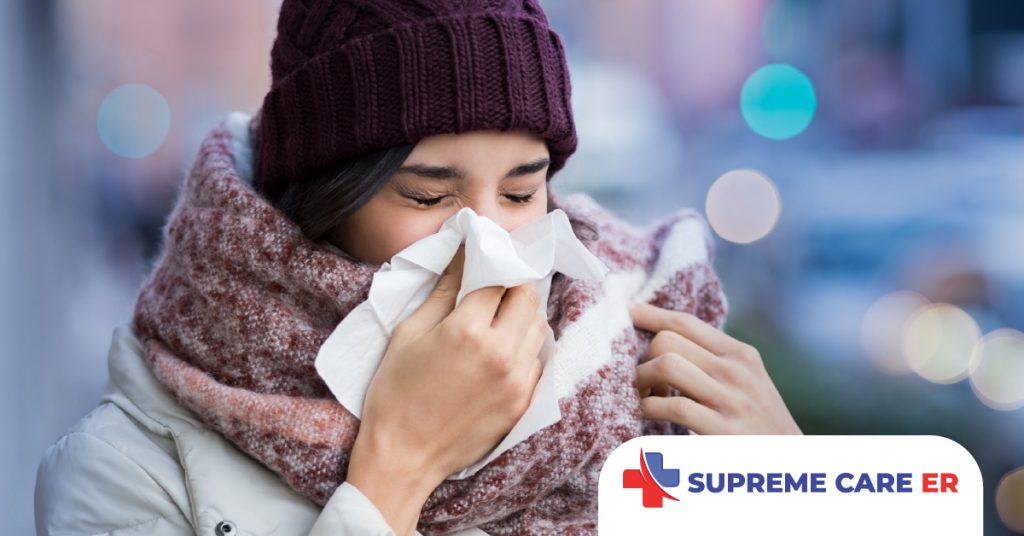Food poisoning is common in the United States. Food poisoning is experienced by thousands of people every day, and it comes with varying symptoms and severities. While mild cases are usually short-lived, they can leave you feeling sick for up to a week.
This article will help you understand what food poisoning is and how to treat food poisoning and prevent food poisoning.
What is Food Poisoning?
Food poisoning is a condition caused by eating contaminated food and can have lasting health effects. If you are not treated for food poisoning in the early stages, it can make you very sick for an extended time. Food poisoning is ranked amongst the top three reported illnesses in the country.
The Center for Disease Control reports that 48 million people get sick, 128,000 are hospitalized, and 3,000 die from food-borne illnesses in the US each year.
List of some of the organisms that cause food poisoning:
- Campylobacter, bacteria found in contaminated processed foods and drinks
- Escherichia coli (E. coli) found in raw vegetables and undercooked meat
- Listeria, found in deli meats and soft cheeses
- Norovirus, found in undercooked shellfish
- Salmonella found in undercooked poultry and raw eggs
- Staphylococcus aureus
What are the Symptoms of Food Poisoning?
Food poisoning symptoms are quite varied because food poisoning is caused when food has been contaminated with bacteria, viruses, or parasites that cause an illness. This illness may not have the same symptoms every time. You may experience different symptoms each time you are sickened by contaminated food.
However, common symptoms include:
- Stomach ache
- Diarrhea
- Nausea
- Fever
- Vomiting
- dizziness
- Cramps
What Causes Food Poisoning?
Food poisoning is mainly caused by handling food poorly. If you want to reduce the chances of getting foodborne diseases:
- Wash raw fruits and vegetables
- Use clean containers
- Wash and disinfect all food utensils before and after each use
- Use separate cutting boards for raw meat from other meats
- Store raw meats in the fridge or freezer
- Get a food thermometer and use it when preparing chicken, pork, beef, or any meat.
Remedies for Food Poisoning
Some remedies for food poisoning to ease the symptoms
- Rest your body
- Hydrating with Electrolytes
- Follow BRAT Diet
- Have Probiotics with Meals
- Drinking Ginger or Mint Tea
Treatment for Food Poisoning
Over-the-counter Medication for Food Poisoning
To alleviate the pain of food poisoning, doctors recommend over-the-counter medications such as Pepto-Bismol and Imodium A-D. These medications will help settle your stomach and prevent you from having diarrhea. However, these treatments are not recommended for children. The FDA (The Food and Drug Administration ) advises that children who have diarrhea stay hydrated and maintain their regular diet – except in certain situations.
Will pepto help with food poisoning?
Bismuth subsalicylate (Pepto Bismol®) is generally fine to take. It helps in soothing, anti-inflammatory effects and can help control diarrhea.
Can you take imodium with food poisoning?
Adults can take over-the-counter medicines like loperamide link (Imodium) and bismuth subsalicylate link (Pepto-Bismol, Kaopectate) to treat food poisoning. These will help to control diarrhea and soothe inflammation but these medicines can be dangerous for infants and children.
Food Poisoning Antibiotics
If you get an infection from bacteria in food, your doctor will usually prescribe antibiotics. Antibiotics treat relatively harmless bacteria as well as disease-causing bacteria. While you’re taking antibiotics, you may want to avoid dairy products, alcohol, and acidic foods like citrus fruits.
Do probiotics help prevent food poisoning – Adding Probiotics to Your Meals
Probiotics are essential for your digestive system. It can help prevent the growth of harmful bacteria in your intestines, which reduces your chance of food poisoning. Probiotics, naturally found in fermented foods like sauerkraut and yogurt, are easily added to your food.
Hydrating With Electrolytes
When you suffer from food poisoning, one of the most important things you can do to fight the infection replaces the fluids that your body loses through vomiting and diarrhea. Since the concentration of electrolytes in your blood also decreases due to water loss, it’s important to use something that has both water and electrolytes.
Following the BRAT Diet
The BRAT diet was developed to help people who are suffering from acute gastroenteritis settle their stomachs. The diet is made up of the following: bananas, rice, applesauce, and toast. These foods contain ingredients that cause less stress on your digestive system.
Getting Enough Rest
It’s also essential to get enough rest, especially for people who have diarrhea. You need to sleep well so that you can heal your digestive system faster.
How Long Does Food Poisoning Last?
People who experience food poisoning recover in a few days without any treatment at all. However, the more severe the case of food poisoning, the longer it takes to get better.
When Do You Need to See A Doctor?
If you or anyone you know has food poisoning, you should see a physician when the following symptoms occur:
- Fever higher than 102 degrees
- Little or no urination (as a result of dehydration)
- Dry mouth and throat
- Frequent vomiting
- Feeling dizzy when standing up
Food poisoning is common for many people every year. Fortunately, the treatment and prevention of food poisoning are quite simple. By following the tips in this article, you will reduce your risk of getting food poisoning and treat it effectively when it happens.








